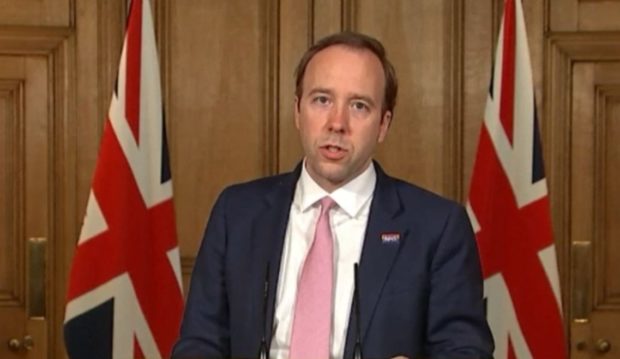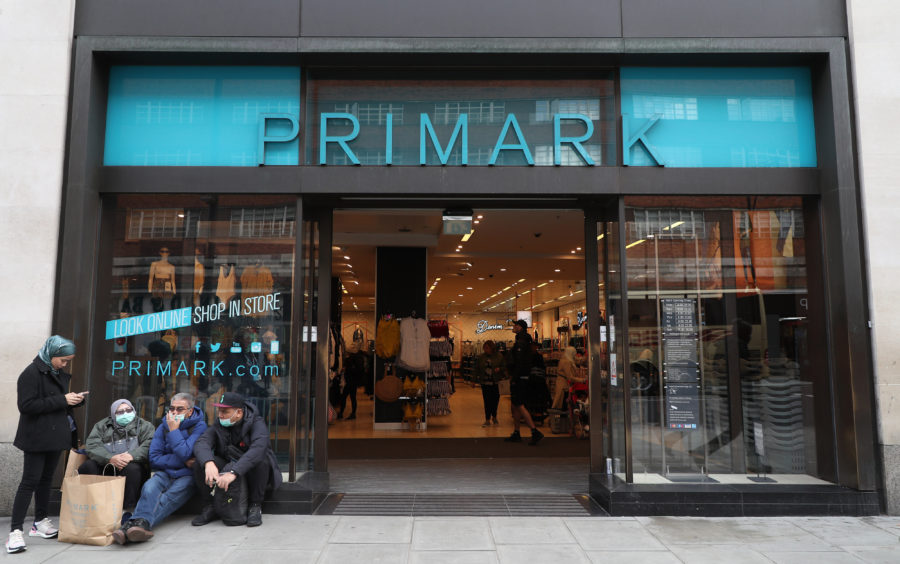If it wasn’t so tragic this coronavirus crisis would increasingly resemble an episode of Sesame Street.
It’s not just the muppets in charge. It’s the range of letters we are all learning to get to grips with.
For the last few weeks many of us have turned armchair epidemiologist and grappled with R, the rate at which the infection spreads.
The next letter to obsess over will be V. That’s the shape of the economic recovery everyone is hoping for.
We’ve seen the down slope. Last week’s statistics showing the bottom had fallen out of the economy may have been unprecedented but they were hardly surprising.
The government essentially switched the economy off by putting everyone into lockdown.
We get a V-shaped recession if the economy is switched back on and looks largely unchanged.
Think of it like turning the telly off and on. The picture looks the same, the bit when the screen is black is immaterial.
Trouble is we don’t know what’s going on inside the economic TV just now.
For it’s not just been reset, it’s effectively been shaken around a bit and dropped during lockdown and it’s anyone’s guess what’ll happen as the power returns to its circuits.
Will there be a delay before the uptick arrives, giving us a U-shaped recession? Will a V-shaped recovery be followed by a second spike creating a W? Or is everything permanently broken creating an economic graph that looks like an L?
Our politicians are the repair men and women who must diagnose the fault and, crucially, plan a repair.
We know the correct component parts are there. For example, the factories, shops and cinemas that were closed in March still stand.
The structure of the economy remains. So there’s added pressure to find the right fix.
As economics professor Jonathan Portes told a webinar last week: “If damage is done to the economy that’s not the fault of the virus, it’s the fault of policy.”
There have been encouraging signs. The Treasury response to coronavirus has been imaginative and bold. The furlough scheme in particular is worth a second look.
An emergency scheme to stop immediate mass redundancies, it appears little more than throwing money at a problem.
But underlying it is a fundamental change – an understanding that the economy, and especially the joblessness total, is not just numbers on a spreadsheet.
The furlough scheme’s design recognises that people are behind those numbers, with families to support and lives that hold meaning.
For perhaps the first time the Treasury explicitly accommodated what’s known as human capital – the knowledge, experiences and personality that we all bring with us when we trade our skills on the market.
Understandably, optimists began to dream of a fundamentally new and improved post-Covid future that puts humans rather than capital at the centre of the new normal.
Bad luck optimists.
When it comes to recovery, so far the Westminster administration seems to have come up with three stand-out policies – Brexit, Britannia and lots of shopping.
“Get Brexit Done” was Boris Johnson’s election mantra and he’s cracking on with it. You don’t have to be an economist to understand that putting up new trade barriers – inevitable in any Brexit – off the back of a depression doesn’t make sense.
Some in the Tory party have been talking up a new royal yacht to replace the decommissioned Britannia that now sits in Leith docks as the solution to a question that does not exist.
Or if it did, then the question would be, how can we convince the public that having run up one of the worst Covid death tolls in the world, we have no interest in atoning or apologising, only in appearing entirely out of touch?
And this week the prime minister was urging folk to shop for Britain.
In England. For non-essential shops remain shuttered in Scotland and elsewhere in the UK. Number 10 either doesn’t understand or doesn’t care for devolution.
Those hoping for coronavirus-induced change in society look set to be disappointed as the government pins its hopes on Primark to jump start the economy.
What of a green new deal, a sustainable future and people preferring simple pleasures to new shoes?
Of course many have not flocked to the shops. And Downing Street wants to encourage them back.
Johnson apparently favours a cut in the VAT rate to pump prime the High Street. He’s copying Alastair Darling’s playbook following the economic crash of 2008.
But what’s different now is that while folk had to be canny with their cash courtesy of the credit crunch, there was no danger of catching a sub-prime mortgage off a fellow shopper.
The properties the government seems to have turned its back on in its approach to our economic recovery are coincidentally the properties that fuelled Sesame Street – imagination and learning.
Jobs and human capital were at the centre of the steps taken to prop up the economy in the spring.
They must remain foremost as the effort turns to getting the nation moving again.
Recession is inevitable. But when it comes to recovery, its shape and its values, our politicians are the ones pulling the strings.
James Millar is a political commentator and author and a former Westminster correspondent for The Sunday Post


